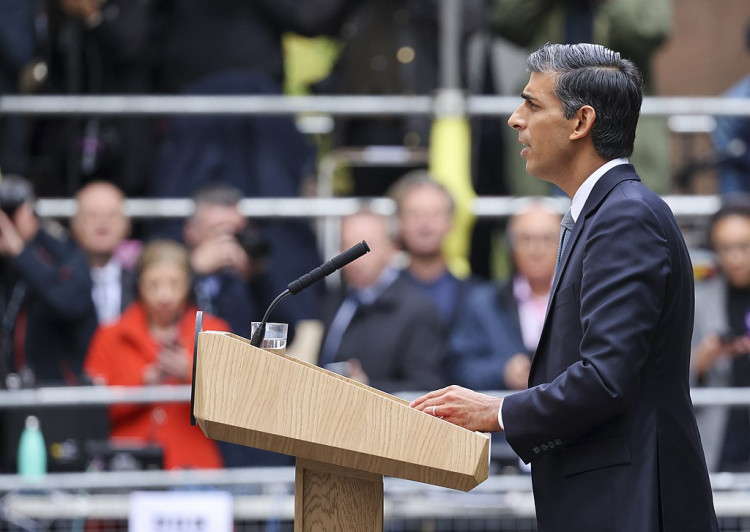British Prime Minister Rishi Sunak unveiled the Conservative Party's election manifesto on Tuesday, pledging substantial tax cuts and additional support for first-time homebuyers. The announcement comes on the heels of Sunak's controversial early departure from D-Day commemorations in France and accusations of misleading the public about Labour's tax plans.
The manifesto outlines a commitment to cut £17.2 billion in taxes by 2030, including a 2 pence reduction in National Insurance and the abolition of self-employed National Insurance contributions within five years. Sunak also reiterated his plan to reintroduce national service, requiring 18-year-olds to complete a year of community or military service. The package aims to address key voter concerns, including economic growth, the cost of living, and housing affordability.
Despite these promises, Sunak and the Conservative Party are bracing for a tough general election on July 4. Polls indicate a likely victory for the Labour Party, which would mark its first parliamentary majority in 14 years. The Conservatives have faced significant backlash following a series of scandals during Boris Johnson's tenure as Prime Minister, and Sunak's recent gaffes have done little to bolster public confidence.
"We are very focused on the profitability of our [internal combustion engine] business, we're growing and improving the profitability of our EV business and deploying our capital efficiently. This allows us to continue returning cash to shareholders," said GM CFO Paul Jacobson in a release.
The new authorization will allow GM to opportunistically repurchase shares after the completion of the existing reauthorization, the automaker said. A timeframe for completion of the program was not announced.
Shares of GM were up 1% in premarket trading. The stock closed Monday at $47.57, up about 32.4% this year.
The announced buyback plans come amid uncertainty surrounding the adoption of all-electric vehicles, which GM has bet heavily on, and stalling customer demand for new vehicles.
"The investments GM made in its brands and product portfolio over the last several years, and the company's operating discipline, are delivering consistently strong revenue growth, margins and free cash flow," Jacobson said.
The Conservative manifesto also includes measures to halve migration and introduce a "Help to Buy" program for first-time property buyers. The initiative aims to tackle the UK's housing crisis, which has been exacerbated by rising property prices and limited supply. However, critics argue that these pledges are vague and lack clear implementation strategies.
The Institute for Fiscal Studies (IFS), an independent think tank, expressed skepticism about the funding sources for the proposed tax cuts. "Those are definite giveaways paid for by uncertain, unspecific, and apparently victimless savings. Forgive a degree of skepticism," said Paul Johnson, IFS director, in a statement. The IFS noted that the tax cuts would be funded by reducing the projected welfare bill by £12 billion and cracking down on tax avoidance.
Helen Dickinson, chief executive of the British Retail Consortium, also raised concerns about the manifesto's lack of detail on key issues such as business rates and work apprenticeships. "This manifesto fails to take the bull by the horns. ... On a brighter note, the Conservatives' commitment to tackling retail crime remains firm in the manifesto, with a pledge to toughen sentences for those who assault retail workers," she said in an emailed statement.
In an attempt to regain voter trust, Sunak has sought to position himself as a champion of economic growth and fiscal responsibility. However, his campaign has been marred by accusations of misleading the electorate and failing to deliver on previous promises. Sunak's claim that Labour would raise taxes by £2,000 per working household has been widely criticized as misleading.
The July election will be a crucial test for Sunak's leadership and the Conservative Party's future. Despite the bold promises in the manifesto, many voters remain skeptical of the party's ability to deliver on its commitments. As the campaign enters its final weeks, Sunak faces an uphill battle to convince the public that his vision for the UK is both realistic and achievable.






